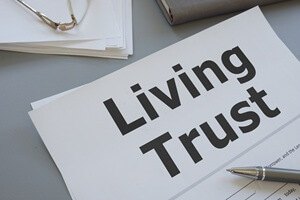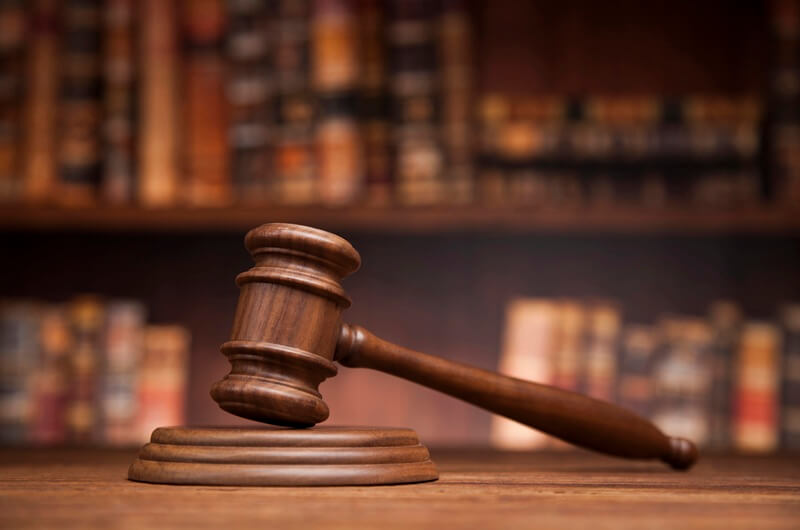How To File A Trust Litigation Case In Los Angeles
Overview:
Trust litigation in Los Angeles arises when trustees, beneficiaries, or heirs dispute how a trust is managed or interpreted. Only those with a direct financial interest can file a case. The process involves consulting an attorney, gathering documents, filing a petition, notifying interested parties, and attending court proceedings. Cases may end in settlement or a court ruling, though challenges like family conflict or missing paperwork often slow things down.
Legal disputes involving trusts can feel like walking a tightrope. Emotions run high, and relationships can suffer. But with proper legal support, protecting your rights and restoring peace of mind is possible. If you’re dealing with trust-related concerns in Los Angeles, you’re not alone.
We’re walking you through a trust litigation case, who can file, how to prepare, what the court process looks like, and how we can help. This guide gives you the knowledge and direction you need to move forward. Let’s begin with the basics of trust litigation and who can initiate a case.
Recap Of Trust Litigation In Los Angeles
When you hear “trust litigation,” think of legal battles that arise from how a trust is written, used, or handled. It isn’t just paperwork. It’s about protecting rights and holding people accountable when something seems off. California probate law sets the rules for these disputes.
Understanding what trust litigation involves helps you decide if you have a case. You don’t need to know every legal detail to get started, just the fundamentals. Below, we explain the issues that commonly spark these legal claims. We’ll also cover who can legally step in and take action.
What Is Trust Litigation?
Trust litigation is the process of resolving legal conflicts involving trusts. These issues might include breaches of duty, unclear language, or suspicious changes to the trust. Probate courts step in when parties can’t work out those problems privately. Litigation gives each of them a legal voice.
Why Trust Disputes Lead To Litigation
Many cases involve disagreements between trustees and beneficiaries. Sometimes it’s about missing assets or vague instructions. People question whether a trust was legally valid from the beginning. No matter the issue, trust litigation creates a path to legal resolution.
When questions about fairness or legality arise, courts need clear facts. That’s why trust litigation focuses on paperwork, timelines, and conduct. Let’s now look at who’s allowed to bring these types of legal claims before a judge.
Who Can File A Trust Litigation Case?
Only specific individuals have the legal right to file a trust litigation case. These typically include trustees, named beneficiaries, heirs, and anyone with a direct financial interest in the trust. The law limits access to prevent unnecessary or baseless lawsuits.
You might qualify if you’re left out of a trust or believe a trustee mishandled funds. Being named, or excluded, from a trust can affect your rights. We’ll help determine if you have legal standing to bring a case. If you do, the next move is legal consultation.
Knowing who has standing avoids delays and wasted time in court. Once you know you qualify, your focus shifts to preparing your case. That means gathering the correct information, which we’ll dive into next.
Steps To File A Trust Litigation Case
Starting a trust litigation case in Los Angeles takes planning. You can’t just walk into court without the right tools. From finding an attorney to filing formal documents, each step matters. Preparation helps build a case that stands up under legal scrutiny.
Below, we break down every key stage, starting with your first meeting with an attorney. You’ll see how each action connects to the next. You can make informed decisions if you know the legal flow. Let’s begin with that vital first consultation.
1. Consulting With A Trust Litigation Attorney
Meeting with an attorney is where strategy begins. We’ll examine your situation, assess the documents, and decide if litigation makes sense. Our job is to explain your options clearly and provide the next steps. Many clients leave this meeting feeling clearer and more confident.
Legal advice isn’t just helpful; it drives your entire case. We use our experience to identify strong claims and avoid weak ones. If we take your case, it’s because we believe in it. Let’s discuss what documents you should bring to that first meeting.
2. Gathering Relevant Documentation
Your case is only as strong as the evidence behind it. We help clients collect trust documents, emails, account logs, and any correspondence tied to the trust. These papers paint a picture of what happened and who was responsible. They’re what courts use to evaluate claims.
If something seems missing, that could be important too. Documentation tells the story that trust alone can’t. We organize your materials so nothing gets missed or misinterpreted. Once we have what we need, it’s time to take your case to court.
3. Filing A Petition In Probate Court
We draft and file a formal petition in the Los Angeles County Probate Court. This petition outlines your case, identifies the people involved, and states your desired outcome. It’s the legal version of putting your hand up and saying, “Something’s not right.”
The court won’t investigate without a clear, written complaint. We handle this step carefully to avoid delays or rejections. Everything must be filed correctly and on time. Once the court accepts your petition, you must notify the other parties.
4. Serve Notice To Interested Parties
After filing, you must serve notice to everyone involved in the trust. That includes trustees, current beneficiaries, and sometimes future or alternate beneficiaries. Proper notice ensures due process and gives others the chance to respond. It’s a step the court takes very seriously.
The court could pause or throw your case out if you did not serve the notice correctly. We manage this task quickly and accurately, so your case stays on track. Once you notify all parties, your dispute officially enters the court system. Let’s explore what happens from there.
5. Court Proceedings
Court proceedings vary by case but usually involve hearings, document exchanges, and sometimes mediation or trial. The judge may ask for additional documents or testimony. Both sides will present evidence and argue their position. The court’s role is to decide what’s fair and legal.
We represent you in every hearing and negotiation. Whether it’s a quick ruling or a drawn-out trial, we’re there from start to finish. We keep your case moving and protect your rights. Eventually, a resolution will come.
6. Resolution
Every trust litigation case ends, either through settlement or a court decision. Many parties settle out of court to save time and stress. If not, the judge may remove a trustee, revise the trust, or order compensation. Sometimes, appeals follow a final ruling.
We aim for smart, efficient outcomes that serve your interests. No two resolutions look the same, but each closes a difficult chapter. Once your case is resolved, we will help with the final steps. Before that, you should know what issues often slow things down.
Legal steps are critical, but they don’t always go smoothly. Next, we’ll explore some challenges clients face with trust litigation.
Common Challenges In Trust Litigation
Trust litigation isn’t just about documents and court dates; it often involves stress, misunderstandings, and personal tension. These disputes can pit family members against each other, especially when trust terms are unclear. The longer things drag on, the harder it gets to resolve peacefully. But challenges aren’t roadblocks; they’re part of the process.
Some issues come from incomplete paperwork or uncooperative trustees. Others involve delays in court scheduling or poor communication between parties. We work hard to keep things organized and on track. The better we prepare, the fewer surprises you’ll face.
No case is entirely smooth. Trust disputes are emotional and legally layered. However, even messy situations can have a fair resolution with strong legal support. Let’s now talk about who we are and how we support you through this.
We Support You Through A Trust Litigation
At Los Angeles Probate Attorneys, trust litigation is a service we take seriously. We don’t leave our clients guessing about what’s next. We provide step-by-step guidance, handle the paperwork, and advocate fiercely for your interests. Our goal is to make the legal process feel manageable, not stressful.
We stay involved and responsive, from the first call to the final ruling. Our clients never feel like just another case file. We take time to understand your goals and concerns. Then we build a custom plan to help reach the best possible outcome.
We bring decades of probate experience to every trust litigation case. That means we know how Los Angeles courts work and how to get results. Whether you’re pursuing a case or defending against one, we’re ready to help. Let’s wrap everything up.
Let Us Help You Protect Your Inheritance
If you’re dealing with a trust dispute in Los Angeles, you have legal options. You don’t have to accept unfair treatment, confusion, or misconduct without a fight. Trust litigation lets you challenge wrongdoing and protect your inheritance. Knowing the process helps you take action with confidence.
At Los Angeles Probate Attorneys, we are here to guide you through every step. We focus on trust litigation because we know how important these cases are to our clients. Let us help you move forward with clarity, care, and legal power. Reach out today to start your case.









